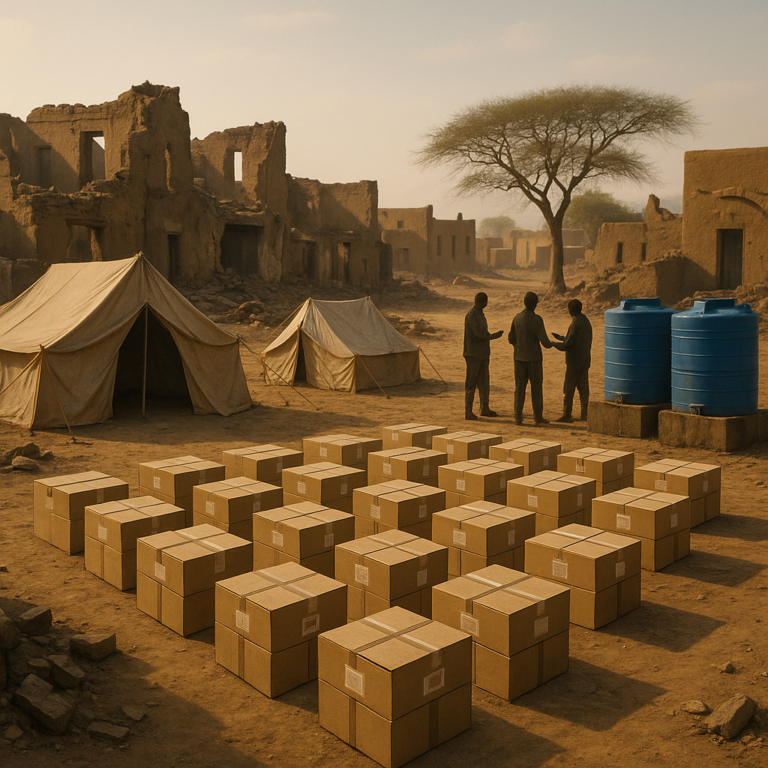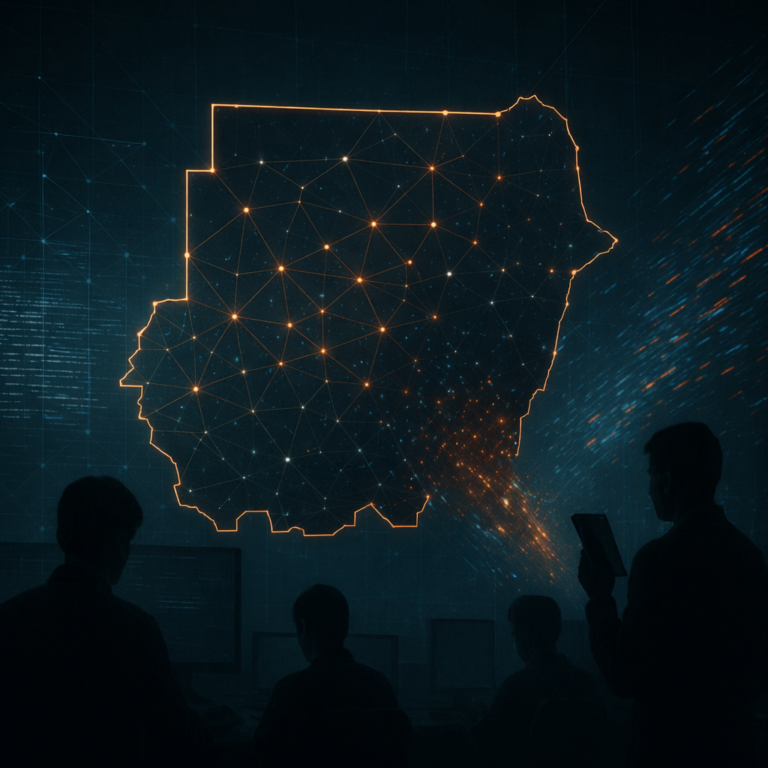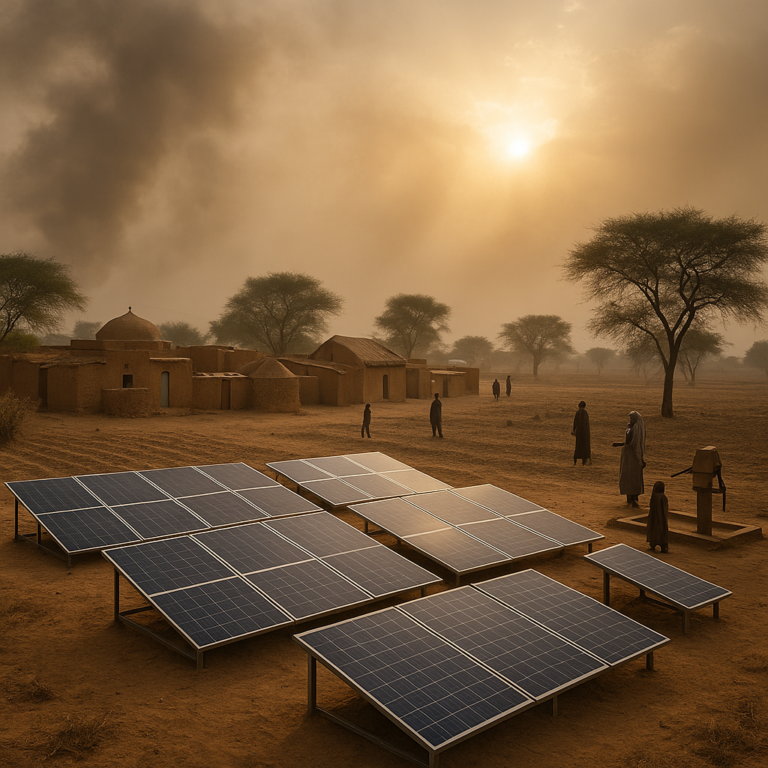Author: Tesneem Hamed Osman
Writing Date: 26 September 2024
Affiliation: Published as part of the 2024 AMEL Sudan Democracy Lifeline Fellowship
Disclaimer: The views expressed in this publication are those of the author(s) and do not necessarily reflect the official policy or position of AMEL
Description of AMEL Fellowship: The AMEL Sudan Democracy Lifeline Fellowship is an online program dedicated to empowering emerging voices to influence global discussions on democracy, peace, and development in Sudan. Through a series of interactive workshops, mentorship, and evidence-based research projects, fellows gain critical skills in analysis, policy formulation, and advocacy.
Defining Democracy in the Sudanese Context
Sudan’s quest for democracy has been anything but smooth. Since the war broke out in April 2023, the gap between how the international community sees our progress and how we, the Sudanese people, truly experience it has only widened, leaving many of us feeling unheard. While diplomats and international leaders often praise initiatives like the Jeddah Talks as signs of progress toward peace, and eventually democracy, many Sudanese citizens feel left out from these efforts. This disconnect is a must-have conversation.
For many in the international arena, democracy is viewed as something negotiated in fancy meeting rooms, with power-sharing deals between elites. The Jeddah Talks and other regional efforts reflect this mindset, aiming to bring warring parties together and stabilize the country. On the surface, it seems like a positive move. However, if you speak to local Sudanese, you’ll hear a different story.
“What good is the ceasefire to us? Tomorrow they will come back and kill us again.” –Displaced Person
To us, democracy isn’t just a bureaucratic mechanism for elections; it’s deeply tied to our freedoms, justice, and economic well-being. In a recent survey, a significant 66.2% of respondents shared that, for them, democracy means having fair laws and justice—not just voting. Yet, international processes often overlook this crucial point, getting swamped in securing ceasefires and negotiating among elites.
“What is the benefit of elections? If there are no laws to punish every corrupt individual and if there are no trials for those who committed war crimes.” – Survey Participator
“So, they held negotiations and integrated the Rapid Support Forces into the army. Does that mean the issue is resolved? This is a militia; militias are not governed by agreements. At most, in a few months, the war will break out again.” – Displaced Person
Take the Jeddah Talks, for example. While international leaders might hail them as a breakthrough, only 15.5% of survey participants expressed any real hope that these talks would lead to genuine democratic change. Nearly 45% believed they wouldn’t help at all. This skepticism isn’t unjustified; most of us don’t feel represented in these negotiations. A significant part of the problem is that these talks often overlook the underlying issues Sudan faces, such as widespread corruption, economic instability, and the exclusion of grassroots voices, which are challenges that cannot be resolved with a simple power-sharing deal; they require genuine engagement and reforms that truly addresses peoples’ needs. The survey highlights that 62% of participants feel that Sudanese voices are inadequately represented in these talks. We’re on the sidelines, watching as powerful figures decide our fate, just as they have for years.
“Who exactly went to Jeddah? These parties have let us down in the past, and they will let us down again now.” – Displaced person
Moreover, the dichotomy in perceptions within Sudan itself is not less of a significant issue, with military leaders pushing for a forceful end to the conflict and civil coalitions calling for diplomacy and an end to foreign intrusion. Yet, the international focus tends to remain on elite negotiations and quick fixes.
What’s crucial for international actors to understand is that democracy isn’t just about who wields power; it’s about how that power is used to uplift the people. Unfortunately, many Sudanese feel the transitional government hasn’t lived up to the promises made during the 2018 revolution. With the economic situation worsening — 59% of citizens believe the economic situation it’s too dire for any democratic progress — the sense of skepticism is tangible, especially among rural populations in areas like Darfur and South Kordofan, who feel left behind by a system that prioritizes urban elites.
If the international community truly wants to help Sudan make a successful democratic transition, it must listen to the people. A strong belief exists among nearly 70% of Sudanese that internal solutions are key to achieving democracy. This means fostering local leadership, supporting civil society, and directly addressing the economic crisis. Endless negotiations among elites won’t bring the change we need; what we require are genuine reforms that reflect our aspirations rather than foreign interests.
Instead of imposing solutions, external actors should focus on empowering local voices. Interestingly, only 36% of respondents see peace talks like the Jeddah Platform as a priority, highlighting a growing skepticism toward external interventions. This divergence complicates the efforts to find a unified approach to peace and democracy in Sudan. What we really need is for international partners to facilitate a conversation that prioritizes the locals’ needs.
The gap between how the international community perceives Sudan’s democratic progress and how we, the Sudanese people, experience it is a critical issue that cannot be ignored. It’s time for the world to understand that genuine democratic reform involves more than just negotiations among elites. The inclusion of local voices and a unified national approach are vital to achieving a stable and democratic future for Sudan. It requires inclusive, grassroots-driven approaches that address our economic and political realities. Until that happens, the future of Sudan hangs in the balance, and the gap between local hopes and international agendas will only continue to grow.
References
Aljazeera, “Sudanese Democracy Should Not Be US-Made,” Aljazeera, 4 March 2024. Available at: link (Accessed: 10 September 2024).
Washington Institute, “Has the Pursuit of Democracy Failed in Sudan?” The Washington Institute for Near East Policy. Available at: link (Accessed: 7 September 2024).
Afrobarometer, “Sudan Democracy Scorecard,” Afrobarometer, June 2024. Available at: link (Accessed: 17 September 2024).
Aljazeera, “Diplomatic Failings and Elite Bargains Prolonging Libya’s Turmoil,” Aljazeera, 20 September 2024. Available at: link (Accessed: 23 September 2024).
International IDEA, Citizens’ Perceptions of Democratic Participation in Sudan (International IDEA, 2022). Available at: link (Accessed: 10 September 2024).
Beam Reports, Taqadum Condemns Foreign Interference in Sudan’s Conflict, 23 September 2024, link accessed 23 September 2024
Radio Dabanga, Twitter, 2024, link, accessed 20 September 2024.




